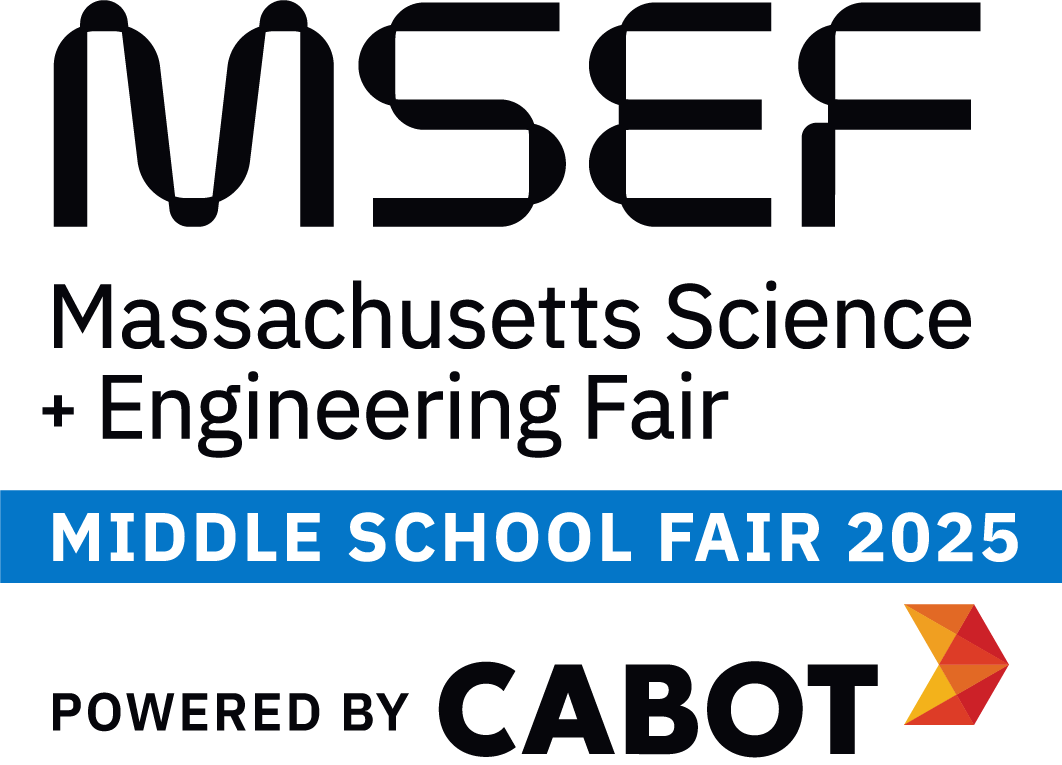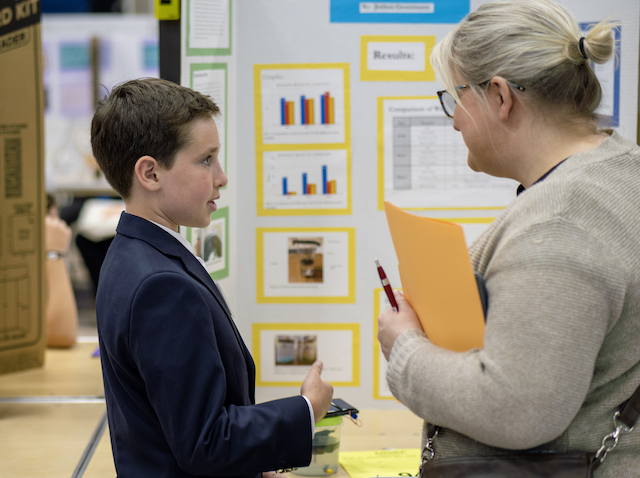Middle School Fairs
Rules & Guidelines
Explore the updates Middle School Manual for requirements, regulations and expectations for the fair.
Use the Middle School Science Fair Ready FAQs for a visual guide to the process. All student projects will use the Middle School Statewide Review site https://MAMS.zfairs.com, regardless of region.
Email us for guidance and support at middleschool@scifair.com
Middle School Students who want to begin projects this summer can do background research and planning only. Experimentation can not begin until the start of the school year. Email middleschool@scifair.com.

Project Requirements:
Please see manual for more details
1.
Projects should only include research done in the current school year to be eligible for participation.
If projects build on any knowledge or experience from a previous year’s work, students should explain this on the research plan and should only present the current year’s work to judges. A continuation project is only allowed if students use a new procedure or answer new questions.
2.
All students grades 6-8 who attend school in Massachusetts are eligible to participate.
Projects are individual with 1 student or made up of a team of 2 or 3 students. For team projects, one student is the lead.
See Student Eligibility Policy for more information.
3.
All projects need adult permission before experimentation. Follow directions at MAMS.zfairs.com & use the paperwork packet. Projects in ‘restricted areas’ need approval before experimentation begins. Submit early for approval!
It is the student and teacher’s responsibility to follow the rules, contact middleschool@scifair.com for support or clarification. With notice, MSEF can pre-review projects for compliance to avoid disqualification.
4.
There are five primary components to a Science & Engineering Fair project: (1) a submitted research plan, (2) a project notebook to record each step of the project – handwritten preferred. (3) A lab report or research paper, complete with works cited and an abstract. (4) A visual display for presentation at the Fair. Consult the manual for restrictions on materials for the Fair presentation and venue. (5) An oral presentation about the project. More information and recommendations can be found here.
5.
Projects should show evidence of scientific research, engineering design, computer science, or applied mathematics. More information on project methods can be found here. Projects that are demonstrations, ‘library’ research or informational projects, ‘explanation’ models, or kit building are not appropriate for competition in MSEF.
Students can choose from these project categories at the Middle School level.
6.
While teachers may suggest general project topics or themes, projects MUST be student’s own design and work.
- Consult the MSEF Ethics Statement
- Adults should provide support and encouragement but the work should be led and facilitated by the student(s).
- Students should explain any work done by others in their research plan and with judges.
The Judging Experience
Judges (professionals and academics in STEM) volunteer their time to review student projects. Judge scores are based on a student’s understanding of their project, not its sophistication. Review the Judges Rubric/Scorecard with your students to help them prepare for the experience.
The Judging Rubric has been updated for the 2025 Fairs.
Science Fair projects are reviewed for
- thoroughness
- problem solving
- independence
- understanding of the topic
Projects receive awards and prizes based on overall score and/or topic category and ideas.

Frequently Asked Questions
- What are the project categories for student projects in Middle School?
- What is pre-approval?
- What are the forms I may need to submit for review and approval?
- What are the pathways to MSEF?
- What are the deadlines for submitting projects and registering for the fair(s)?
- What are the materials required to be judged at MSEF?
- Why are there two sets of safety guidelines?
- Do I have to be at the fair the full day?
- What is Thermo Fisher Scientific Junior Innovators Challenge (JIC)?
- How do I find my regional zFairs page?
- Where can I find results from past years?